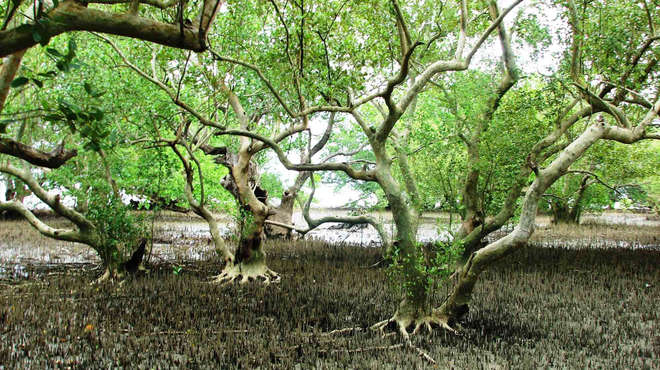Highlights
• Economic, social, and governance challenges for mangrove PES are investigated.
• The research uses primary data from two coastal sites in the Philippines.
• Mangrove carbon PES could contribute an additional 2.3–5.8% to current village income.
• Payments could finance ventures that counteract the environmental benefits of schemes.
• PES may require multi-level and multi-actor governance with local participation.
Abstract
Mangrove forests have been considered as potentially suitable for PES, though few mangrove PES schemes exist worldwide, suggesting they - and the broader social-ecological and governance systems in which they sit - may not be as conducive to PES as first thought. This study assesses economic, social, and governance challenges to implementing PES in mangroves. It draws on empirical evidence from two prospective community-level mangrove carbon PES schemes in the Philippines, where fishing and aquaculture are major livelihoods. We conducted (1) policy reviews and interviews with local communities, government, and NGOs to investigate governability; (2) village income accounting to determine the extra income that participants could receive through PES; and (3) a choice ranking exercise to elicit preferences on how payments could best be spent to enhance participant wellbeing. The latter approach identifies key gender differences, and enables potential PES-induced social-ecological trade-offs to be pre-empted. Blue carbon PES can contribute an additional 2.3–5.8% of current village incomes, while villagers would prefer to spend the monies on more effective fishing equipment, which could perversely jeopardize fishery sustainability. To be most successful, coastal PES schemes in the Philippines need to be managed through a multi-level governance regime involving co-management and local participation.

by Benjamin S. Thompson 1, , , Jurgenne H. Primaver 1 and 2, Daniel A. Friess 1
1. Department of Geography, National University of Singapore, 1 Arts Link, Singapore 117570, Singapore
2. Community-Based Mangrove Rehabilitation Project, Zoological Society of London, 132 Quezon St., Iloilo City, Philippines
Ecosystem Services http://www.sciencedirect.com/science/journal/22120416 via Elsevier Science Direct www.ScienceDirect.com
Volume 23, February 2017, Available online 28 December 2016; Pages 146–155
Keywords: Benefit sharing; Blue carbon; Conservation; Gender; Perverse incentives; Fishers
No comments:
Post a Comment